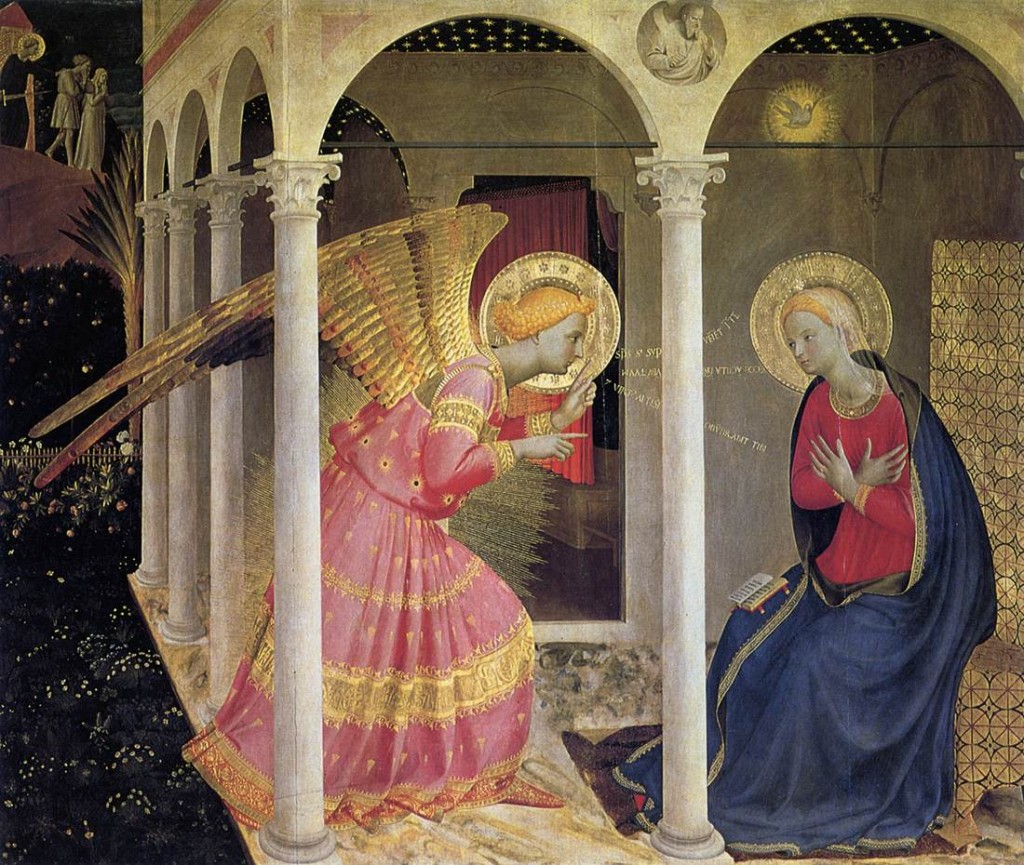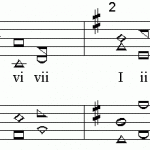In 2014, I’m reading and blogging through Pope Francis/Cardinal Bergoglio’s Open Mind, Faithful Heart: Reflections on Following Jesus. Every Monday, I’ll be writing about the next meditation in the book, so you’re welcome to peruse them all and/or read along.
Today is the Feast of the Annunciation, the solemnity in which the Church celebrates Mary’s “Amen” and consent to be part of God’s plan for salvation. But, in our day-to-day lives, we seldom have moments that feel like such obvious invitations to cooperate with grace, and even the ones we do encounter are hardly heralded by the appearance of the Angel Gabriel. But, as Pope Francis points out in this week’s chapter of Open Mind, Faithful Heart, moments of temptation (which seem a lot more common, at least in my life) are also opportunities for grace. He writes:
However [the Devil] attacks, he is always astute in his planning. He knows what he wants. And if he attacks something, it is because he recognizes that it is dangerous. That is why Christian tradition asserts that where there is temptation there is also grace. Temptation is a “difficult time,” Cardinal Pironio tells us, and as such “it belongs to the designs of the Father, being essentially a time of grace and salvation.”
So, when I feel my anger or impatience flare, I’m not necessarily far from God. I’m holding something very precious in my hands, my love and charity, and I have to decide whether to keep it fast or let it go. Each moment of temptation is a chance to turn back to God, and even to be reminded of what He is.
The apophatic strain of theology (also known as via negativa) defines God by what He is not. He is not finite, changeable, etc. We may not have a very good grasp on what it really means to be outside of time, but we know what it’s like to be within time, from our own experience, and we know that God is somehow different.
So, in a moment of temptation, I’m being reminded of what God is not and what I am actually allowed to leave behind, if I choose to. My contempt, my callousness isn’t my proper inheritance, they’re poisoned gifts that I accepted in error, that I’m free to relinquish at any moment.
I might not know exactly what I need to do to put on Christ, but every small, daily temptation is a chance to learn. By saying “No” to each of them (or as many as I can manage), I can grow close enough to God to start recognizing what I could be saying “Amen” to in their stead. What can I do with the time freed up by giving up Threes/2048? If I put aside anger toward an acquaintance, what feeling could blossom in its stead?
While I’m still mired in “the night that covers me / Black as the Pit from pole to pole” I don’t have the perspective to see or desire the graces that Mary said “Amen” to, but, by struggling my way out by a series of small “No”s, I may be able to say yes. Till them, like Puddleglum from C.S. Lewis’s The Silver Chair, I will keep turning away from shadows even when I can’t quite see light:
Suppose we have only dreamed, or made up, all those things-trees and grass and sun and moon and stars and Aslan himself. Suppose we have. Then all I can say is that, in that case, the made-up things seem a good deal more important than the real ones. Suppose this black pit of a kingdom of yours is the only world. Well, it strikes me as a pretty poor one. And that’s a funny thing, when you come to think of it. We’re just babies making up a game, if you’re right. But four babies playing a game can make a play-world which licks your real world hollow. That’s why I’m going to stand by the play world. I’m on Aslan’s side even if there isn’t any Aslan to lead it. I’m going to live as like a Narnian as I can even if there isn’t any Narnia.
When I can’t quite grasp the idea of God, or am mired in despair, I know Him by his difference from the way that I’m wicked or wounded. At the most basic, in a moment of temptation, the answer to “What is God?” is “Not this!” And that “No” denies the great lie, that weakness and wickedness is the best we can hope for. Actual strength may be beyond me, but the desire for strength is within my grasp. The more I hold on to that desire, the more alert and better prepared I’ll be to accept strength, if it’s offered.













